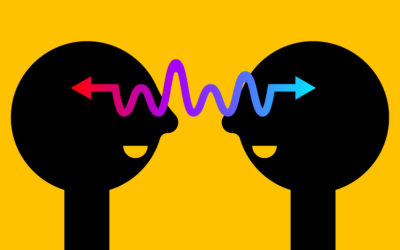Quick Hits
Daily brief research updates from the cognitive sciences

With such a title there is lots of scope for jokes about bad brains, bad genetics, and stupidity. Most of which are probably unjustified. And one of the things many of us involved at different levels in neuroscience are quick to point out is that the brain is plastic, it grows and learns – throughout life.
Nevertheless, it is important to find out about the underlying mechanisms and the limits to this plasticity.
Researchers at the UT Southwestern Medical Centre have discovered a genetic mutation that impacts memory and learning. Because learning is a complex process it is often nigh on impossible to identify single genes that contribute to this.
For this study the researchers conducted a large-scale mutagenesis screen – that is screened mice with multiple mutations in their genes to try to track down various neurological and behavioural traits. They then managed to identify a mutant mouse with spatial learning defects. They named the mouse Clueless – who said scientists don’t have a sense of humour.
With mice with similar mutations, they noticed that they learned badly in fear-conditioning tests, with reduced freezing, a natural response, and also defects in short-term and long-term memory. They could then map this to a single mutation in the Kcnc3 gene which encodes potassium channels in neurons (I won’t go into that here – quite a specific feature of a neuron which enables electrical impulses).
So fascinating to know that a single gene with quite specific functions can lead to larger scale learning deficits – and good to know this so that researchers can finally get a better grasp on some of these issues. There are likely many reasons for being clueless but one of them appears to be a mutation in the Kcnc3 gene.
No funny jokes about my degrading memory now!

Andy Habermacher
Andy is author of leading brains Review, Neuroleadership, and multiple other books. He has been intensively involved in writing and research into neuroleadership and is considered one of Europe’s leading experts. He is also a well-known public speaker, speaking on the brain and human behaviour.
Andy is also a masters athlete (middle distance running) and competes regularly at international competitions (and holds a few national records in his age category).
Reference
Pin Xu, Kazuhiro Shimomura, Changhoon Lee, Xiaofei Gao, Eleanor H. Simpson, Guocun Huang, Chryshanthi M. Joseph, Vivek Kumar, Woo-Ping Ge, Karen S. Pawlowski, Mitchell D. Frye, Saïd Kourrich, Eric R. Kandel, Joseph S. Takahashi.
A missense mutation in Kcnc3 causes hippocampal learning deficits in mice.
Proceedings of the National Academy of Sciences, 2022; 119 (31)
DOI: 10.1073/pnas.2204901119
More Quick Hits
The Surprising Effectiveness of Coaching in Diminishing Burnout Symptoms
Different areas of the brain are associated with empathy – this new research shows how brain regions synchronise to induce empathic responses.
When Love Overrides Other Needs
Different areas of the brain are associated with empathy – this new research shows how brain regions synchronise to induce empathic responses.
The Negative Social Impact of Dealing with AI in the Workplace
Different areas of the brain are associated with empathy – this new research shows how brain regions synchronise to induce empathic responses.
How the Gut Influences Brain Development in Babies
Different areas of the brain are associated with empathy – this new research shows how brain regions synchronise to induce empathic responses.
Your Brain’s Own Cannabinoid Molecules Calm You Down
Different areas of the brain are associated with empathy – this new research shows how brain regions synchronise to induce empathic responses.
Role of Dopamine in Speed and Accuracy of Decisions
Different areas of the brain are associated with empathy – this new research shows how brain regions synchronise to induce empathic responses.






